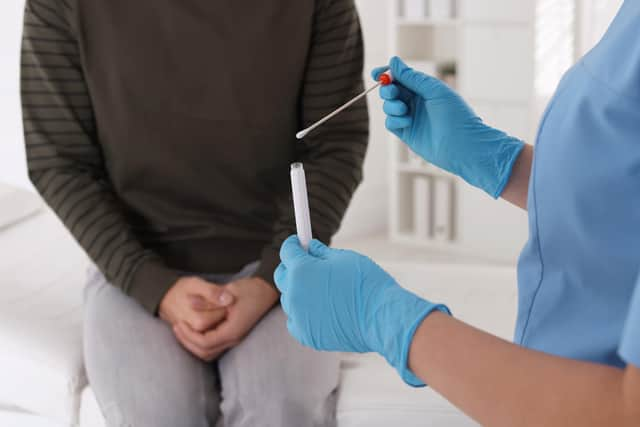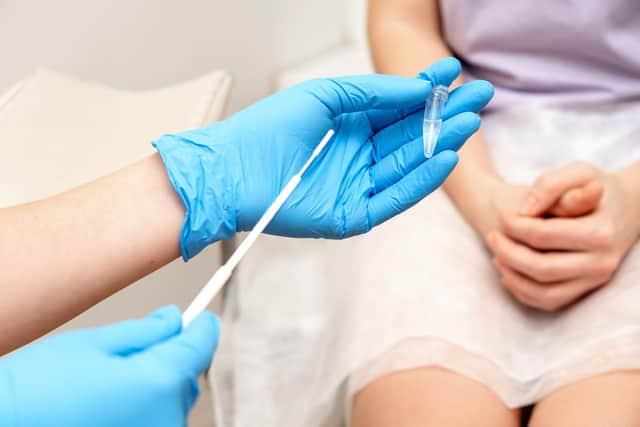'Always use a condom': Appeal after 47% rise in sexually transmitted infections in Northern Ireland
and live on Freeview channel 276
This comes as sexually transmitted infections (STIs) continue to rise in Northern Ireland.
In 2021, there was a 47% increase in the overall number of STI tests carried out compared with before the pandemic in 2019. This is due to a significant increase in home STI testing, commissioned by the health service, the PHA said.
Advertisement
Hide AdAdvertisement
Hide AdThe PHA said 10% of these home tests were positive, and this positivity rate has not fallen with the increased testing, which would suggest that people are being tested appropriately and finding a previously unmet need.


There was also an increase in diagnoses made in GUM clinics across all STI groupings, with new STI diagnoses up by 5%; other STIs up by 15% (for example patients treated for recurrent or chronic infection, and contacts of cases); and other diagnoses requiring treatment in GUM up by 16%.
Dr Gillian Armstrong, Consultant in Public Health at the PHA, said: “By having unprotected sex you could effectively be sleeping with everyone your partner’s ever slept with, putting yourself at risk of getting HIV or another STI.”
“This campaign aims to promote good sexual health by encouraging the use of condoms and regular testing for STIs. We hope this will contribute to reducing STIs over time in Northern Ireland.”
The campaign will specifically target 16-34 year olds as this age group has the highest rate of STIs, and ads will run from across February and March on TV, broadcast, print, outdoor and digital platforms.


Advertisement
Hide AdAdvertisement
Hide AdDr Armstrong continued: “If you are sexually active, use condoms – when used correctly, they are the only form of contraception that can protect against both unplanned pregnancy and STIs. If you are sexually active, using condoms is an important part of taking care of your sexual health. Also, limit your number of sexual partners and get tested quickly if you think you might be at risk of having contracted an STI.
“Men who have sex with men having unprotected sex with casual or new partners should be screened for HIV and other STIs at least annually, and every three months if changing partners regularly, due to the increased risk of infection. They should also consider the use of PrEP (pre-exposure prophylaxis) which can reduce an individual’s risk of getting HIV from sex. When taken as prescribed, PrEP is highly effective for preventing HIV, however it does not protect against other STIs so the use of condoms remains really important.
“People are more likely to have risky sex if they have been drinking alcohol or are under the influence of drugs. It is important that people are aware of how alcohol affects their decision making.
"Alcohol lowers our inhibitions, meaning we may take more risks, including having sex when we may not have done or not thinking about using a condom. The more you drink, the higher the risk of having unsafe sex.
“Remember that people with STIs don’t always have symptoms. The best way to protect yourself is by choosing to use a condom when having sex and taking an STI test if there is a chance you have contracted an STI – simply order a free and discreet home STI test now at www.sh24.org.uk or make an appointment at your nearest GUM clinic.”
Advertisement
Hide AdAdvertisement
Hide AdInformation on looking after your sexual health, symptoms of STIs (as well as information on STIs which may be symptomless) can be found at www.sexualhealthni.info